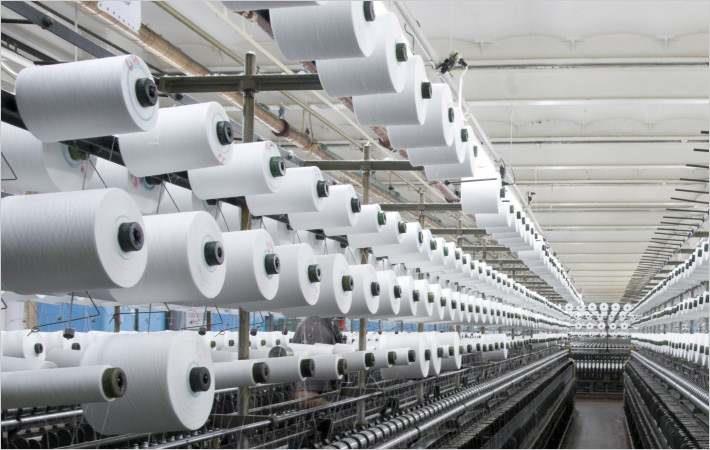Telangana: Textile sector sees sops, subsidies in 2017

Telangana was earlier part of undivided Andhra Pradesh state. There are 16,879 working handlooms and 49,112 powerlooms in the state at present.
About Rs 373 crore was earmarked for the handloom sector and Rs 827 crore for powerlooms and their modernization in the budget. In August, the state announced a string of incentives, including capital subsidy, for the next five years for new and existing enterprises to boost the textile sector. Part of the Telangana Textile and Apparel Incentive Scheme 2017, the sops aim to attract investment and generate job opportunities.
A capital subsidy of 25 per cent for conventional textile units and 35 per cent to technical ones manufacturing medical textiles, geotextiles, agrotextiles and protective clothing was announced.
In government textile parks, the state will take complete responsibility for providing a common effluent treatment plant for use by individual industrial units, the circular said.
Sops to facilitate return of weavers from Telangana who migrated earlier to other states were also announced. More than 23,000 weavers from the state are said to have returned home following government initiatives in the last three and a half years.
In November, the government launched a revised Rs 100-crore ‘yard subsidy’ scheme in cotton-rich Warangal to benefit nearly 35,000 weavers. The 20 per cent subsidy on purchase of cotton, wool and silk yarns, dyes and chemicals by weavers and their cooperative societies was doubled to 40 per cent. Additionally, beneficiaries can avail the central government’s 10 per cent subsidy.
A host of other measures, including a Rs 10.5-crore loan waiver, setting up of handloom and powerloom corporations, and administrative sanction for a handlooom park in Gadwal city, were announced as well. The loan waiver will benefit about 2,500 handloom weavers. Each weaver will receive a waiver of up to a lakh rupees.
Handlooms and textiles minister KT Rama Rao asked officials in April to formulate a handloom directory containing details of the weavers so that policies could be framed to directly offer subsidy benefits to them.
Rama Rao also sought setting up of a separate corporation for wide marketing and increase in sales of handloom items. Geo-tagging and Aadhaar-linking of all the 16,776 handlooms functioning in the state under 5,505 weavers’ societies was completed to implement welfare schemes. The officials of the handlooms department also carried out a study of the Cooptex of Tamil Nadu to work on the same model in Telangana.
In June, the government placed an order for one crore saris worth Rs 200 crore with powerloom weavers in Rajanna district’s Sricilla town, which has been in the news for high suicide rates due to unemployment. The saris were distributed to women living below the poverty line during a festival. The state government also placed orders for bedsheets and blankets for hospitals with powerloom weavers there.
In November, the government decided that orders for producing fabric for school uniforms under the Rajiv Vidya Mission and Bathukamma sarees and other materials will be placed only if powerloom weavers upgrade their looms to produce value-added fabric. Out of a total 50,000 powerlooms in the state, Sircilla town hosts more than 30,000. The government also undertook upgradation of powerlooms in Sircilla.
State chief minister K Chandrasekhara Rao on October 22 laid the foundation stone of the Kakatiya Mega Textile Park, an integrated textile cluster on 1,200 acres near Shayampet in Warangal. This is the first industrial park project to reach this stage in three years after the state was formed.
The government plans to invest Rs 1,000 crore in the project featuring common effluent treatment, zero-liquid discharge facilities and readymade sheds. With an estimated 27,000 direct and 50,000 indirect employment potential from this park, there is a plan to expand it to 2,000 acres.
Rao said over a dozen firms have come forward to set up their manufacturing bases at the park with a cumulative investment of over Rs 3,900 crore. The project aims to bring back local textile workers who had migrated to Surat in Gujarat, Bhivandi in Haryana and Sholapur in Maharashtra after the Azam Jahi Textile Mill in Warangal closed.
A visiting Korea Federation of Textile Industries (KFTI) delegation in August had expressed satisfaction over the location and infrastructure of the park.
In April, a new training and garment production centre was launched with 40 Juki sewing machines at the textile park near Sircilla to provide employment to women. The number of machines will gradually be increased to 150. The government has plans to set up an apparel park at Sircilla by investing Rs 30 crore.
Amazon India signed an agreement in August with the state department of handloom and textiles to educate and train weavers and artisans to directly sell their products to the firm’s customers online. This will boost sale of popular handloom products from Pochampally, Warangal, Gadwal, Narayanpet and Siddipet.
Cotton was sowed on a record 47.72 lakh acres in the state this year. However, cotton production is feared to have come down drastically because of pink bollworm pest, unseasonal rains and inferior quality seeds. Pink bollworm is estimated to have eaten up 40 per cent of the crop this year. The state’s agriculture and marketing departments estimate a fall in production from 3.30 crore quintals estimated earlier to 2 crore quintals.
Incidents of distressed cotton farmers committing suicide were reported in the state in November-December.
The state also directed all district collectors in December to take stringent action against sale and supply of unapproved herbicide tolerant cotton variety developed by Monsanto and directed them to immediately destroy the produce. The state is concerned over widespread cultivation of this genetically-engineered cotton seed by farmers. (DS)
Fibre2Fashion News Desk – India
































-Ltd..jpg?tr=w-120,h-60,c-at_max,cm-pad_resize,bg-ffffff)





.jpg?tr=w-120,h-60,c-at_max,cm-pad_resize,bg-ffffff)
.jpg?tr=w-120,h-60,c-at_max,cm-pad_resize,bg-ffffff)






